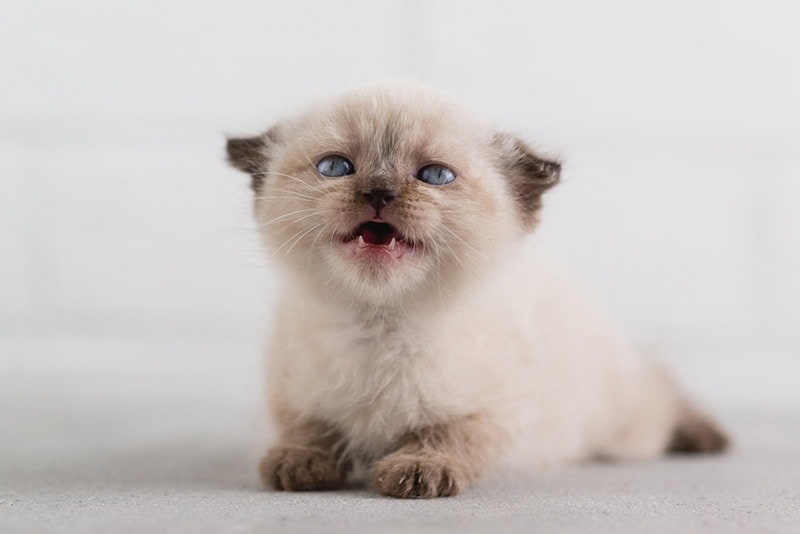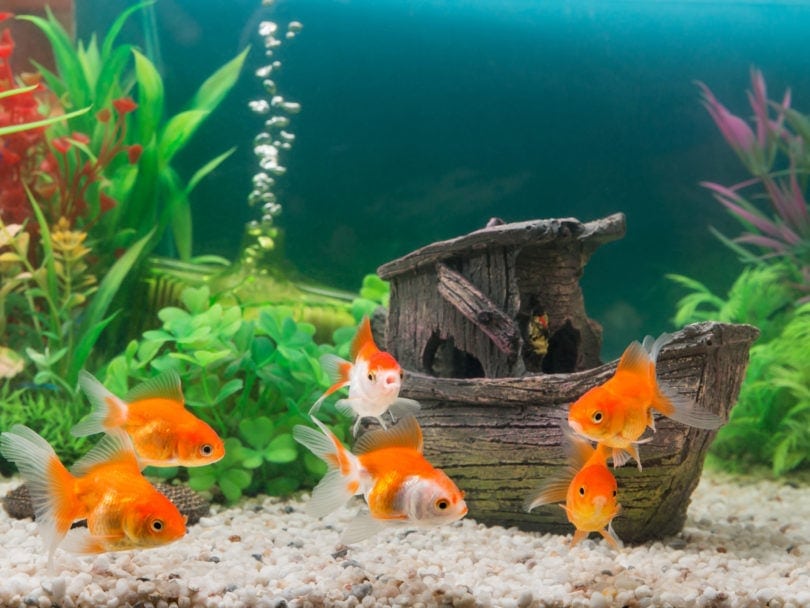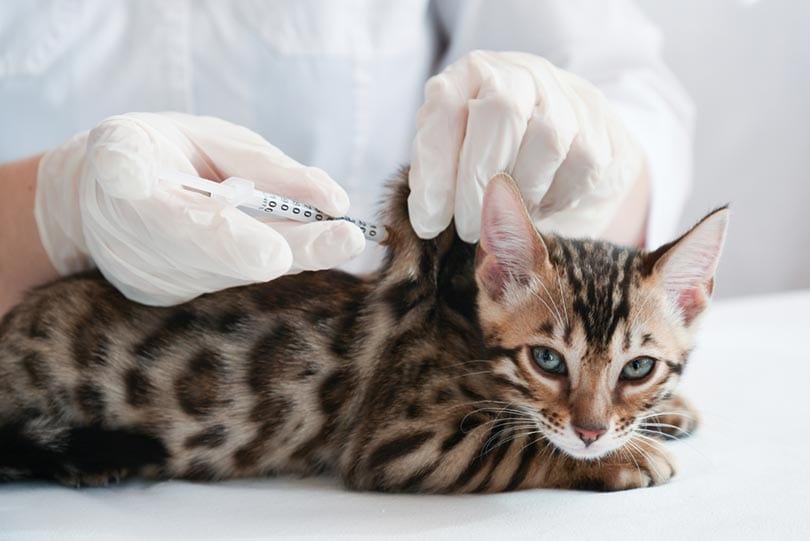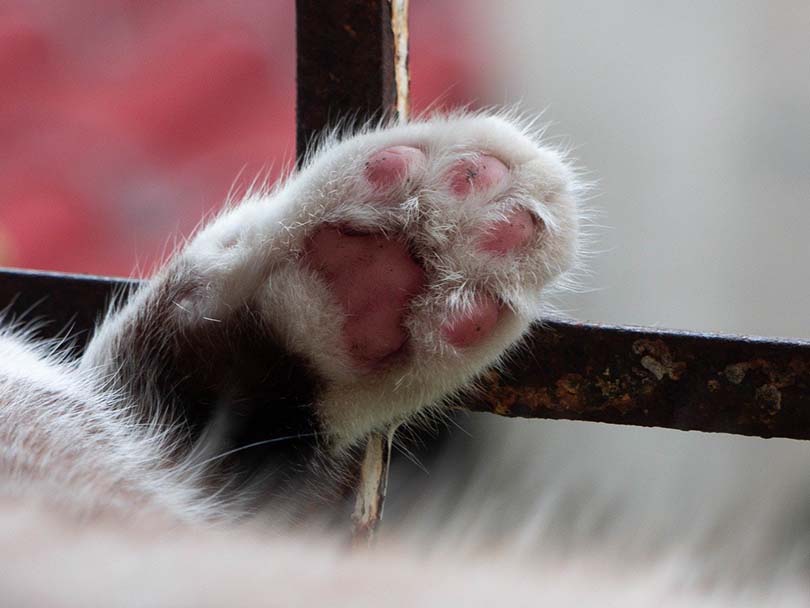VET APPROVED

The information is current and up-to-date in accordance with the latest veterinarian research.
Learn more »Click to Skip Ahead
Kittens are curious little creatures, and you’ve almost certainly had to remove objects from your kitten’s mouth once or twice if he decided to chew on something he shouldn’t have. Once your kitten begins teething, the chewing is only going to increase, and it helps to be prepared. In this article, we will look at the signs of teething in kittens, how to help a teething kitten, and other facts about teething in kittens. If you’re curious to learn more, keep reading.

The 7 Signs of Teething in Kittens
Kittens grow their baby teeth around 3–4 weeks old. Around 3–4 months of age, the baby teeth are replaced with permanent adult teeth. As your kitten undergoes teething, you may notice some physical signs as well as changes in behavior.
1. Strong Need to Chew
Teething kittens will have a strong desire to chew. If you have noticed that your kitten has been chewing objects more than usual, that could indicate that he has begun teething. Much like teething infants, kittens like t0 chew because it helps relieve the pressure they are experiencing.
Kittens will chew indiscriminately, so ensure that delicate or dangerous items are kept out of their paws. Objects just as wires, loose strings, or hair ties could pose a threat to your kitten if he accidentally swallows them.
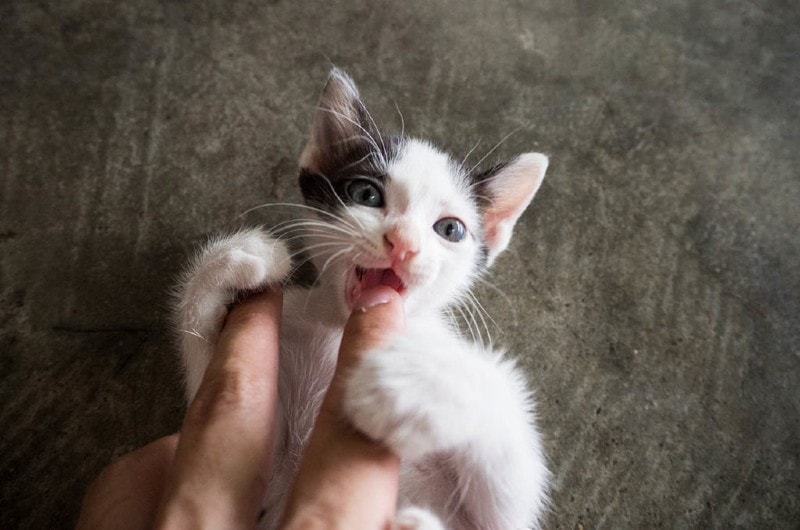
2. Loss of Appetite
If your kitty has suddenly stopped eating with the same vigor he used to, it could indicate that he is teething. The reluctance to eat is due to the sensitivity of your kitten’s gums, so you may catch him chewing slowly and only taking a bite or two of food before walking away.
There are other reasons a kitten may stop eating that do not involve teething, so be sure to rule out the possibility of any related medical complication.1
3. Agitation
The pain of teething may cause your little kitty to become grumpy. If you have noticed that your kitten is behaving more sullenly or aggressively, teething could be the reason.
However, aggressive or depressive behavior may also be linked to medical issues in cats, so be sure that you keep an eye on your kitty for any other signs of physical distress. If it appears that the change in attitude is simply due to the pain of teething, have patience. The process is only temporary, and soon enough, your kitten’s playful attitude will return.
4. Inflammation of the Gums
This is one of the more obvious physical signs of teething in kittens. If you examine your kitten’s mouth and notice that his gums are reddened and inflamed, there is a strong chance he is teething. There is also a chance that this is a symptom of gingivitis,2 so if it does not clear up soon, take him to the vet as soon as possible. Gingivitis can progress into more serious conditions, and prompt treatment is necessary.
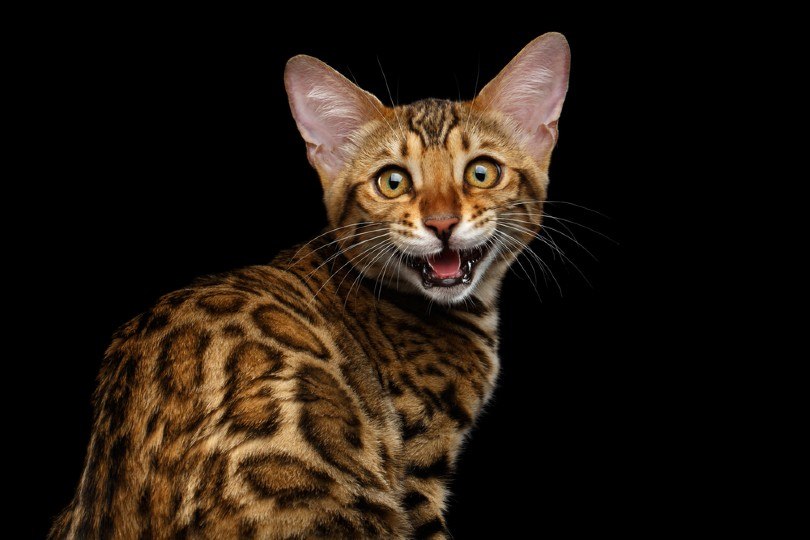
5. Bloody Drool
Another sign of teething is if your kitten’s gums are bleeding and he is drooling excessively. As long as you do not observe any other concerning symptoms, it is likely due to his teething. However, there is still a chance that bloody drool can be a sign of dental disease, so take your kitten to the vet if you are concerned. Even kittens can develop dental disease, so don’t assume it’s impossible simply due to their age.
6. Pawing at Mouth
Pawing at the mouth is a clear sign that your kitten is experiencing pain in that area. You may also notice your kitten shaking his head or displaying other strange behaviors. Don’t be alarmed; your cat likely has a loose tooth he is trying to shake out. However if the pawing is excessive, or other changes are present, don’t be afraid to investigate further or contact your veterinarian for advice.
7. Losing Teeth
Have you found a tiny kitty tooth lying around? Even if your cat is losing baby teeth, you may not find any lying around the house. Kittens often swallow their baby teeth when they fall out. No need to worry, as baby teeth are much too small to cause any serious harm to your kitten.
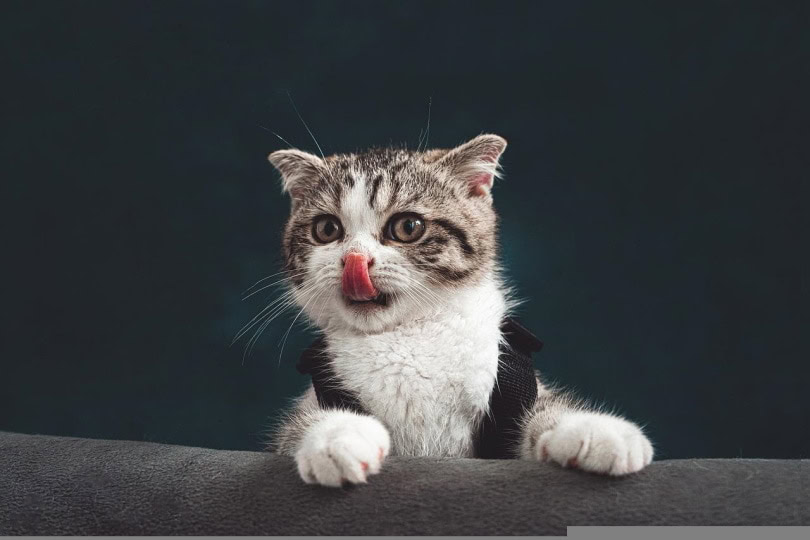

How to Help a Teething Kitten
Now that you can recognize the signs of teething in your kitten, you’ll need to know which steps you can take to help them through the process as painlessly as possible.
1. Feed Wet, Soft Food
Soft, wet food is an ideal meal for a teething kitten. Kibble or other hard foods can cause your kitten extra pain when he eats, which may discourage him from eating as much as he should. While your kitten is teething, swap out the dry kibble for softer wet food. If your kitten isn’t into the wet food, try softening his regular kibble with water before serving it.
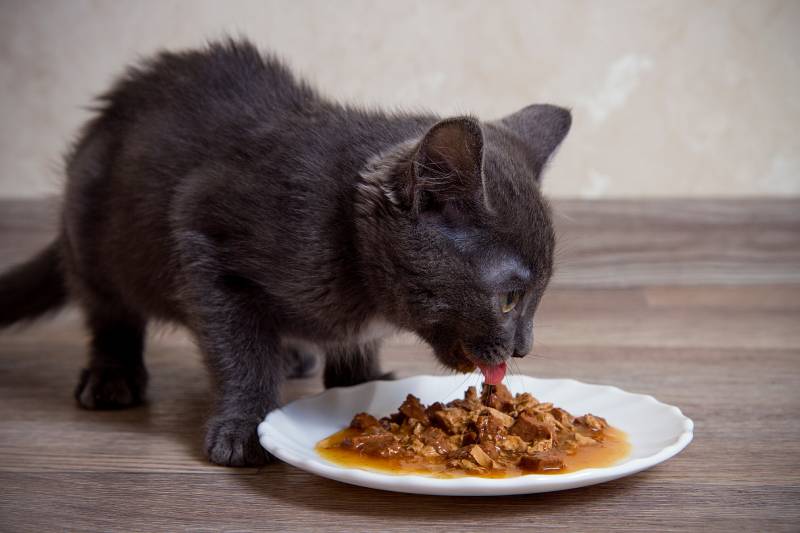
2. Pause the Teeth Brushing
Regular tooth brushing is essential to feline dental care, but while your kitten grows new teeth, it is best to pause the brushing. Brushing your kitten’s sensitive teeth and gums may cause him to associate toothbrushing with pain, which will make future dental care much more difficult.
Brushing your kitten’s teeth during teething may also damage his gums and worsen his pain. Your kitten may lash out in self-defense if he is put through too much pain.
3. Be Gentle with Your Kitten
Playtime will need to change while your cat is teething. Games like tug-of-war should be put on hold, as the tugging sensation may damage your kitten’s gums and cause more pain. Still, you must give your kitten plenty of love and attention. Play with your cat more gently and spend time soothing him while he is in pain.

Facts About Teething in Kittens
The best way to be prepared for your kitten’s teething is to learn as much as you can beforehand. Below, we’ve listed some interesting facts about teething in kittens that can help you grow more informed.
1. Cats Grow Two Sets of Teeth, Like Humans
Thankfully, your kitten will only go through the process of teething twice: once when they grow their baby teeth and once when they grow their adult teeth. If your kitten has already grown his baby teeth and is now in the process of replacing them, that is the last time you will need to help your kitten through this process.
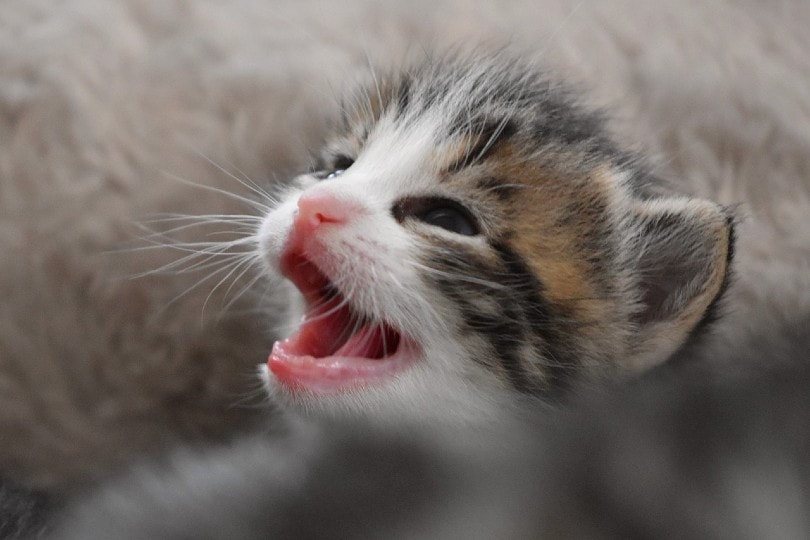
2. Cats Have 30 Permanent Teeth
Around 3–4 months, your kitten will begin to grow his permanent teeth. By the end of the process, at around 6–7 months of age, he should have 30 permanent adult teeth.

Conclusion
The process of teething in kittens can be difficult, but if you are prepared, you can do your best to support your kitten during the months when his adult teeth come in. We hope that this article has helped you recognize the signs of teething in kittens and learn how to help a teething kitten. By examining more facts about teething for felines, you will be more confident in your ability to handle the situation when it arrives.
- https://www.petmd.com/cat/nutrition/cat-wont-eat-try-these-tricks
- https://www.petmd.com/cat/behavior/can-cats-get-depressed
- https://www.petmd.com/cat/conditions/behavioral/c_ct_aggression
- https://www.petmd.com/cat/conditions/mouth/c_ct_gingivitis
- https://vcahospitals.com/know-your-pet/dental-disease-in-cats
Featured Image Credit: Garmasheva Natalia, Shutterstock
